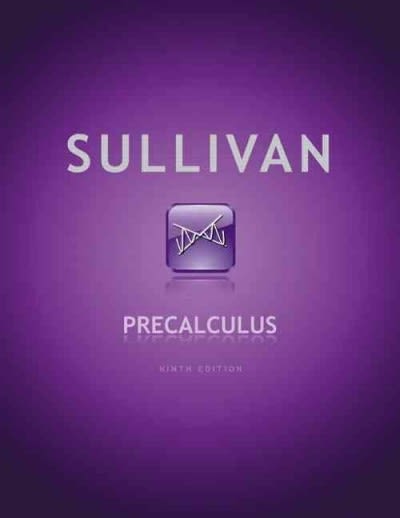Question
Consider all students who are currently enrolled in a large course to be a population. In this population, the percentage of sophomore students is 38%.
Consider all students who are currently enrolled in a large course to be a population. In this population, the percentage of sophomore students is 38%. Suppose that when a random sample of 50 students is selected and surveyed from this large course, the percentage of sophomore students in the sample is 44%.
1. Would the number 38% be a statistic or a parameter? Please explain.
2. Would the number 44% be a statistic or a parameter? Please explain.
Let's also imagine that you learn the average grade point average (or GPA) for all students in the large course described above is 3.25. The average GPA for the random sample of 50 students you have chosen to survey is 3.10.
3. Would the number 3.10 be a statistic or a parameter? Please explain.
4. Would the number 3.25 be a statistic or a parameter? Please explain.
5. You and five of your classmates each select a different sample of 30 students to survey
from the large course described above. In the resulting six samples, the percentage of sophomore students is as follows: 50%, 40%, 40%, 60%, 70%, and 50%. Remember that in the population of all students in the large course, the percentage of sophomore students is 38%. Because these six sample percentages (i.e., 50%, 40%, 40%, 60%, 70%, and 50%) consistently overestimate the true population percentage, we say we have
A. inconsistency. B. variability. C. bias. D. nonresponse. E. undercoverage.
6. Return to Question 5. Because there are differences among the sample percentages of 50%, 40%, 40%, 60%, 70%, and 50%, we say we have
A. inconsistency. B. variability. C. bias. D. nonresponse. E. undercoverage.
We often use a statistic to estimate an unknown parameter. An understanding of bias and variability is important when we attempt to engage in this kind of estimation, and we need to do our best to manage bias and variability.
7. How can bias be reduced?
8. How can variability be reduced?
Step by Step Solution
There are 3 Steps involved in it
Step: 1

Get Instant Access to Expert-Tailored Solutions
See step-by-step solutions with expert insights and AI powered tools for academic success
Step: 2

Step: 3

Ace Your Homework with AI
Get the answers you need in no time with our AI-driven, step-by-step assistance
Get Started


